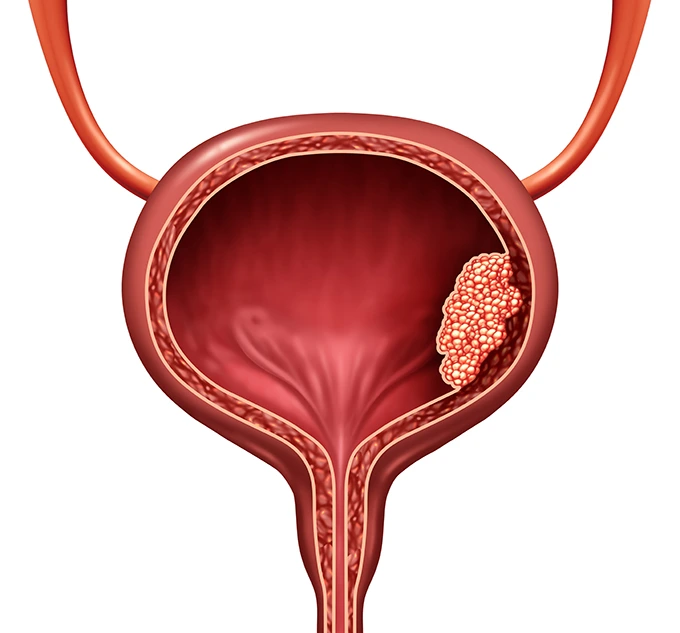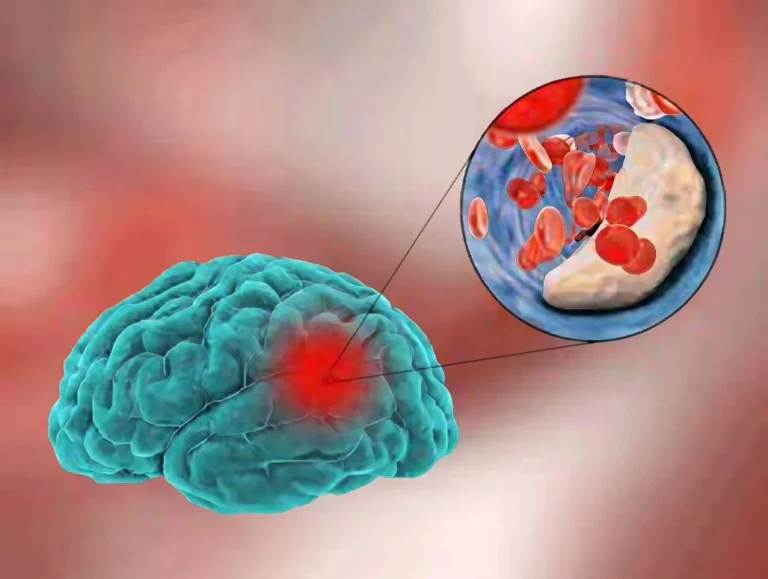
IMFINZI® Regimen Boosts Survival in Muscle-Invasive Bladder Cancer: NIAGARA Phase III Post-Hoc Analysis
A post-hoc exploratory analysis from the Phase III NIAGARA trial has shown that AstraZeneca’s IMFINZI® (durvalumab), when administered perioperatively with neoadjuvant chemotherapy, significantly improves event-free survival (EFS) and overall survival (OS) in muscle-invasive bladder cancer (MIBC) patients. The regimen showed benefits in both patients who achieved a pathological complete response (pCR) and those who did not, when compared to chemotherapy and radical cystectomy alone.
The results were presented at the 2025 American Society of Clinical Oncology Genitourinary Cancers Symposium (ASCO GU) in San Francisco, California (abstract #659).
In the trial, the IMFINZI perioperative regimen reduced the risk of disease progression, recurrence, or death by 42% in patients who achieved pCR and 23% in those who did not. Additionally, it reduced the risk of death by 28% for patients who achieved pCR and 16% for those who did not. Furthermore, the regimen improved metastasis-free survival (MFS) by 33% and disease-specific survival (DSS) by 31%, as compared to chemotherapy alone.
Matthew N.D. Galsky, Professor of Medicine and Director of Genitourinary Medical Oncology at the Icahn School of Medicine at Mount Sinai, and NIAGARA Investigator, noted that these data confirm the efficacy of the IMFINZI regimen in MIBC. He emphasized that the treatment improved outcomes regardless of pCR status, offering hope for patients with muscle-invasive bladder cancer who need better treatment options.

Cristian Massacesi, Chief Medical Officer at AstraZeneca, also highlighted that the NIAGARA trial was the first Phase III study to show statistically significant improvements in both EFS and OS with a perioperative immunotherapy regimen for MIBC. The reduction in distant metastasis risk further underscores the potential of IMFINZI to become a new standard of care for this indication.
These results build upon findings from the European Society for Medical Oncology (ESMO) Congress and data published in The New England Journal of Medicine, where IMFINZI demonstrated a 32% reduction in the risk of disease progression and a 25% reduction in the risk of death in the intent-to-treat (ITT) population. Additionally, the pCR rate improved by 10% with the IMFINZI regimen.
Exploratory Post-Hoc Analysis Data:
In patients with pCR, the IMFINZI regimen showed:
- A 92.1% EFS rate at 24 months (compared to 85.8% with chemotherapy alone).
- A 95.5% OS rate at 24 months (compared to 91.1% with chemotherapy alone).
For patients without pCR:
- EFS was 67.8% with IMFINZI vs. 59.8% with chemotherapy.
- OS was 82.2% with IMFINZI vs. 75.2% with chemotherapy.
Additional Secondary Endpoint Outcomes (ITT):
- Metastasis-free survival (MFS) at 24 months was 75.1% with IMFINZI vs. 65.1% with chemotherapy (33% reduction in risk).
- Disease-specific survival (DSS) at 24 months was 89.2% with IMFINZI vs. 82.2% with chemotherapy (31% reduction in risk).
IMFINZI was generally well tolerated with no new safety concerns observed. The combination did not interfere with patients’ ability to undergo surgery, and immune-related adverse events (imAEs) were consistent with the known profile of IMFINZI.
Based on the promising results of the NIAGARA trial, IMFINZI in combination with neoadjuvant chemotherapy has been granted Priority Review in the U.S. for the treatment of MIBC. Regulatory applications are also underway in the European Union (EU), Japan, and other regions. This offers a potential new treatment option for MIBC patients and is expected to establish a new standard of care in this challenging disease.
IMPORTANT SAFETY INFORMATION
There are no contraindications for IMFINZI® (durvalumab) or IMJUDO® (tremelimumab-actl).
Severe and Fatal Immune-Mediated Adverse Reactions Immune-mediated reactions, which can be severe or fatal, may occur in any organ system or tissue at any time during or after treatment. Monitor patients for signs of these reactions and assess clinical chemistries, including liver enzymes, creatinine, ACTH levels, and thyroid function. In suspected cases, promptly initiate a medical evaluation, including infection screening. If needed, administer systemic corticosteroids (1-2 mg/kg/day prednisone) until symptoms improve to Grade 1 or less, then taper the corticosteroids over at least one month. For unresponsive reactions, consider additional immunosuppressants.
Immune-Mediated Pneumonitis IMFINZI and IMJUDO can cause immune-mediated pneumonitis, potentially fatal. The risk is higher in patients with prior thoracic radiation.
- IMFINZI as a Single Agent: 2.4% incidence, including fatal (<0.1%) and Grade 3-4 (0.4%) reactions.
- IMFINZI with IMJUDO: 1.3% incidence, including fatal (0.3%) and Grade 3 (0.2%) reactions.
- IMFINZI + IMJUDO + Platinum-Based Chemotherapy: 3.5% incidence, including fatal (0.5%) and Grade 3 (1%) reactions.
Immune-Mediated Colitis IMFINZI with IMJUDO and chemotherapy may cause immune-mediated colitis, often with diarrhea, and can be fatal. CMV reactivation may occur in cases unresponsive to corticosteroids. In such cases, repeat infection screening.
- IMFINZI as a Single Agent: 2% incidence, including Grade 4 (<0.1%) and Grade 3 (0.4%).
- IMFINZI + IMJUDO: 6% incidence, including Grade 3 (3.6%).
- IMFINZI + IMJUDO + Chemotherapy: 6.5% incidence, including fatal (0.2%) and Grade 3 (2.5%).
Immune-Mediated Hepatitis IMFINZI and IMJUDO may cause fatal immune-mediated hepatitis.
- IMFINZI as a Single Agent: 2.8% incidence, including fatal (0.2%), Grade 4 (0.3%), and Grade 3 (1.4%) reactions.
- IMFINZI + IMJUDO: 7.5% incidence, including fatal (0.8%), Grade 4 (0.3%), and Grade 3 (4.1%) reactions.
- IMFINZI + IMJUDO + Chemotherapy: 3.9% incidence, including fatal (0.3%), Grade 4 (0.5%), and Grade 3 (2%) reactions.
Immune-Mediated Endocrinopathies
- Adrenal Insufficiency: Occurs in 0.5% (IMFINZI alone), 1.5% (IMFINZI + IMJUDO), and 2.2% (IMFINZI + IMJUDO + Chemotherapy). Treat with hormone replacement as needed.
- Hypophysitis: Occurs in 0.1% (IMFINZI alone), 1% (IMFINZI + IMJUDO), and 1.3% (IMFINZI + IMJUDO + Chemotherapy). Monitor for symptoms such as headache, photophobia, or visual field changes.
- Thyroid Disorders: Immune-mediated thyroiditis, hyperthyroidism, and hypothyroidism can occur. For hypothyroidism, provide hormone replacement therapy. For hyperthyroidism, treat as clinically indicated.
- IMFINZI alone: 0.5% thyroiditis, 2.1% hyperthyroidism, 8.3% hypothyroidism.
- IMFINZI + IMJUDO: 1.5% thyroiditis, 4.6% hyperthyroidism, 11% hypothyroidism.
- IMFINZI + IMJUDO + Chemotherapy: 1.2% thyroiditis, 5% hyperthyroidism, 8.6% hypothyroidism.
- IMFINZI + Carboplatin and Paclitaxel: 14% hypothyroidism.
Type 1 Diabetes Mellitus
Monitor for hyperglycemia or other symptoms of diabetes. Insulin may be required.
- IMFINZI as a Single Agent: <0.1% incidence of Grade 3 immune-mediated Type 1 diabetes.
- IMFINZI + IMJUDO: 0.5% incidence of hyperglycemia requiring insulin.
- IMFINZI + IMJUDO + Chemotherapy: 0.5% incidence of Type 1 diabetes, including Grade 3 (0.3%).




